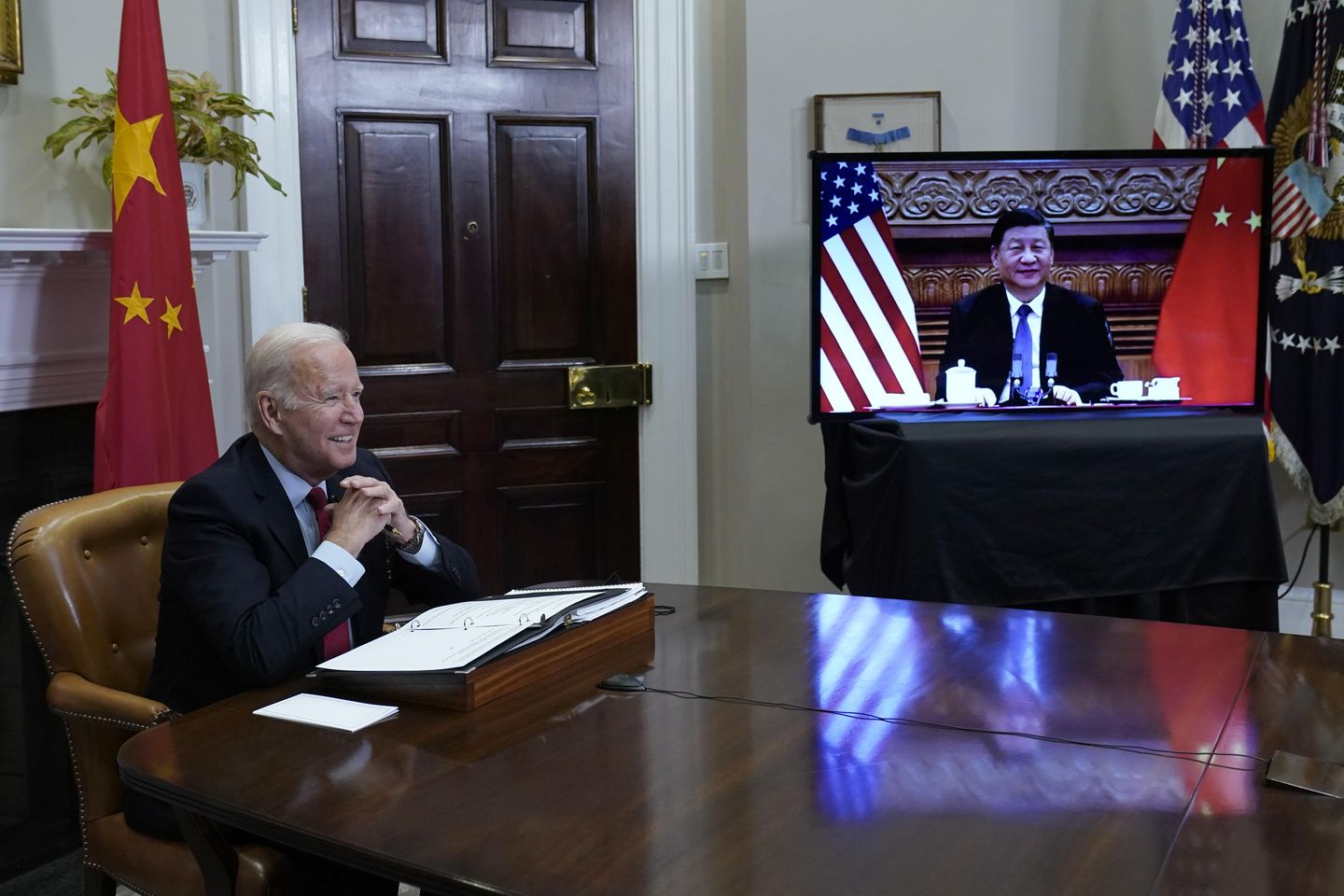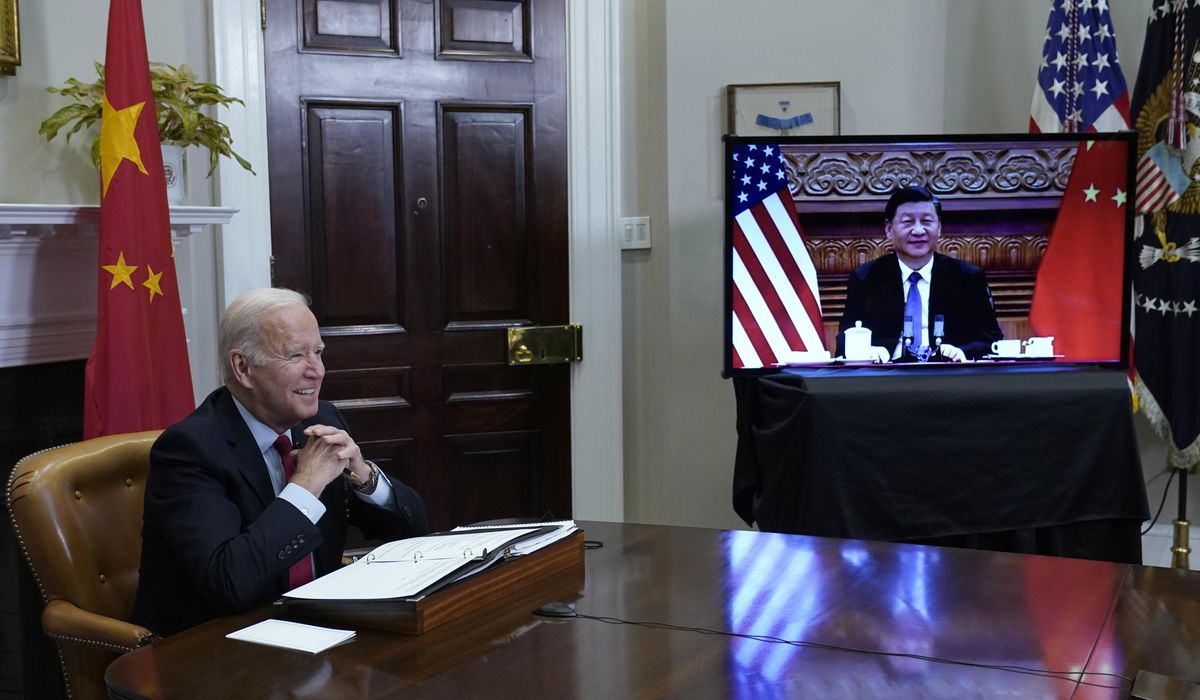

President Biden and Chinese leader Xi Jinping met via video teleconference for more than three hours on Monday night, discussing a wide slate of issues at a moment of growing international concern over Cold War prospects between the U.S. and the world’s biggest communist power.
While China‘s military muscle-flexing and advancements — including its rapidly expanding nuclear arsenal and a recent test of a nuclear-capable hypersonic missile — have made global headlines in recent months, a White House summary of Monday night’s call made no mention of a specific discussion on such matters between Mr. Biden and Mr. Xi.
The president did, however, caution the Chinese leader that U.S. officials are uneasy about China‘s growing aggression toward the tiny island democracy of Taiwan. Mr. Biden also raised concerns about Beijing’s mistreatment of Muslims and ethnic minorities in China‘s Xinjiang Province, and aggressive policies against Hong Kong and Tibet.
Administration officials said in a statement that the president also raised concerns about “human rights more broadly.”
On other fronts, Mr. Biden “was clear about the need to protect American workers and industries from [China‘s] unfair trade and economic practices,” a White House readout of the Biden-Xi conference said. “He also discussed the importance of a free and open Indo-Pacific, and communicated the continued determination of the United States to uphold our commitments in the region.”
“President Biden reiterated the importance of freedom of navigation and safe overflight to the region’s prosperity,” the readout said, adding that “on Taiwan, President Biden underscored that the United States remains committed to the ‘one China‘ policy, guided by the Taiwan Relations Act, the three Joint Communiques … and that the United States strongly opposes unilateral efforts to change the status quo or undermine peace and stability across the Taiwan Strait.”
Friction between the U.S. and China over Taiwan has been growing, with surging Chinese military incursions into Taiwanese airspace over the past year and reports of American forces training Taiwanese forces.
Chinese officials have signaled desires for China to fully absorb Taiwan, and U.S. officials have warned that Beijing may be moving toward attempting to use force to achieve that end.
Away from the Taiwan issue, U.S. military officials have expressed growing concern over China‘s expanding nuclear weapons arsenal. A recent Pentagon report warned that China is on a path to more than doubling its arsenal over the coming years and could have 700 deliverable nuclear warheads by 2027, and 1,000 by 2030.
While there was no specific mention of this in the White House readout of the Biden-Xi conference, the readout said Mr. Biden “underscored the importance of managing strategic risks” with China and “noted the need for common-sense guardrails” to ensure that U.S.-China “competition does not veer into conflict.”
